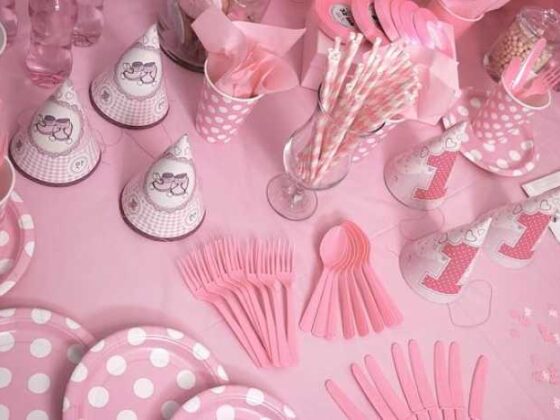Welcoming a new baby into the world is one of life’s most exciting-and nerve-wracking-moments. If you’re a newbie parent, you’ve probably found yourself swimming in advice from every corner: family, friends, the internet, and that random stranger at the grocery store. It can feel overwhelming! That’s why we’ve put together Baby Health 101: easy Tips for Newbie Parents-a down-to-earth guide to help you navigate those first few months with a little more confidence and a lot less stress. From keeping your little one comfy and safe to simple ways to boost their wellbeing, we’ve got you covered. So grab a cup of coffee (or a much-needed snack),and let’s dive into the basics of baby health!
Choosing the Right Nutrition for Your Little One
When it comes to nourishing your little bundle of joy,simplicity and attentiveness are key. Every baby is unique, so paying attention to their hunger cues and tolerance is just as vital as what you feed them. Whether you’re choosing breast milk, formula, or starting solids, aim to provide a balanced and gentle introduction to nutrients. Remember, breast milk offers a perfect blend of antibodies and vitamins, while formulas are designed to closely mimic those benefits if breastfeeding isn’t an option. Once solids enter the picture, start slow with single-ingredient, easy-to-digest foods like pureed carrots or mashed bananas and watch for any reactions.
Here’s a quick cheat sheet to keep at hand for early feeding stages:
- Breast Milk/Formula: Your baby’s primary nutrition source for the first 6 months.
- Single-Ingredient Solids: Introduce one at a time to spot allergies.
- Consistency: Thin purees first, then gradually move to thicker textures.
- Hydration: Offer small amounts of water once solids begin.
- Variety: Rotate different vegetables, fruits, and grains for well-rounded exposure.
| Age | Feeding Focus | Recommended Foods |
|---|---|---|
| 0-6 Months | Milk Feeding | Breastmilk or formula |
| 6-8 Months | Introducing Solids | Pureed veggies & Fruits |
| 8-12 Months | Texture Variety | Mashed Foods & Soft Finger Foods |

Simple Sleep Tricks Every New Parent Should Know
Mastering your baby’s sleep routine can feel like decoding a secret language. One of the easiest yet most effective ways to encourage restful zzz’s is to create a consistent pre-sleep ritual. Think gentle rocking, soft lullabies, or a warm bath-these cues tell your little one it’s time to wind down. Don’t underestimate the power of a dark, quiet room either; blackout curtains and white noise machines can turn a fussy environment into a serene sleep haven.
Another game-changer? Learning your baby’s unique sleepy signals-those adorable yawns, eye rubbing, or sudden fussiness. Instead of waiting until they’re overtired, try putting your baby down at the first signs of sleepiness. here’s a quick cheat sheet to keep handy:
| Sleep Sign | What to do |
|---|---|
| Yawning | start the bedtime routine |
| eye rubbing | Dim lights & soothe with soft touch |
| Fussiness | Swaddle or use white noise |
| Looking away | Put down for a nap or bedtime |
- Keep naps short and consistent to avoid overtired meltdowns.
- Feed before sleep times so your baby isn’t waking from hunger.
- Be patient and flexible-every baby is a little different!

Baby-proofing Basics to Keep Your Home Safe
Creating a safe environment for your little explorer is essential from day one. Start by securing heavy furniture to walls to prevent tipping accidents – think bookshelves, TV stands, and dressers. Cover all accessible electrical outlets with child-safe plugs and keep cords and blind strings out of reach. Soft corner guards on tables and fireplace edges can save a lot of tears (and potential ER visits!). Don’t forget to stash away small objects that can pose choking hazards, and use baby gates to block off staircases or rooms that aren’t baby-friendly just yet.
When it comes to dangers your baby can’t see, like poisons or chemicals, think vertical storage. Store cleaners, medications, and sharp tools in high cabinets with child locks. Keep a list handy of emergency numbers and make sure everyone in your household knows the basics of infant CPR and first aid. Here’s a quick reference table to help you prioritize areas to baby-proof:
| Area | Risk | baby-Proof Tip |
|---|---|---|
| Kitchen | Chemicals & Hot Surfaces | Use cabinet locks; keep pot handles turned in |
| Bathroom | Drowning & Chemicals | Never leave unattended; lock medicine cabinets |
| Living room | Furniture Tipping | Anchor furniture; cover sharp edges |
| Stairways | Falls | Install sturdy baby gates |
When to Call the Doctor: Key Signs You Shouldn’t Ignore
Keeping an eye on your little one’s health can feel overwhelming, but there are some clear signs that you should never brush off. If your baby develops a high fever (over 100.4°F or 38°C), especially if they are under 3 months old, it’s time to reach out to your pediatrician right away. Also, watch for persistent vomiting or diarrhea that won’t stop after a few hours – dehydration can sneak up on tiny bodies super fast. Sudden changes in behavior,like extreme lethargy or constant crying that you can’t soothe,are red flags to get expert help quickly.
Here are a few other signals that mean a doctor’s visit is a must:
- Breathing difficulties – wheezing, grunting, or very fast breaths
- Unusual rashes that spread quickly or look like bruising
- Blue lips or face during feeding or sleep
- Refusal to eat or drink for more than a few hours
| Sign | Why it’s serious | When to act |
|---|---|---|
| High fever (100.4°F+) | Could indicate infection | Instantly for under 3 months |
| continuous vomiting | Risk of dehydration | After 2-3 hours of vomiting |
| Breathing trouble | oxygen supply issues | Urgently |
| Lethargy | Possible serious illness | Promptly |
Q&A
Q&A: Baby Health 101 – Easy tips for Newbie Parents
Q: I’m a new parent and a bit overwhelmed. What’s the absolute first thing I should focus on when it comes to my baby’s health?
A: Breathe! Seriously, take a moment to calm down. Then, start with the basics: make sure your baby is feeding well (whether it’s breastmilk or formula), staying warm but not overheated, and having clean diapers regularly. If those are in check,you’re already doing grate.
Q: How often should I bathe my newborn? Won’t that dry out their skin?
A: Newborns don’t need daily baths. About 2-3 times a week is fine! you can also do sponge baths in between. Keep it gentle-use mild, fragrance-free baby soap and lukewarm water. Moisturize right after to keep that soft skin happy.
Q: What should I look out for to know if my baby is sick?
A: Babies can’t tell you when they feel off, so watch for signs like a fever (over 100.4°F/38°C), persistent crying, poor feeding, fussiness, trouble breathing, or unusual rash. When in doubt, call your pediatrician. It’s always better to be safe.
Q: How can I help my baby sleep better?
A: Sleep is a biggie! Establish a simple nighttime routine-like a warm bath, gentle lullabies, dim lights-so your baby knows it’s time to snooze.Also, put your baby on their back to sleep on a firm mattress without toys or blankets for safety.
Q: Is tummy time realy necessary? I’m nervous about my newborn lying on their belly.
A: Yes! tummy time is fantastic for building your baby’s neck, shoulder, and arm muscles-and helps prevent flat spots on their head. Start with just a few minutes a day when they’re awake and supervised, then gradually increase as they get stronger.
Q: What about vaccinations? Should I be worried?
A: Nope! Vaccines are super important to protect your baby from serious diseases. Your pediatrician will guide you on the schedule, and most kiddos handle vaccines like champs. Side effects are usually mild and temporary.
Q: can I give my baby vitamins or supplements?
A: Only if your pediatrician recommends them.Most healthy babies get all they need from breastmilk or formula.Don’t just grab vitamins from the pharmacy without checking first.
Q: Any quick tips for soothing a fussy baby?
A: Try the classic “5 S’s” from Dr. Harvey Karp: swaddle, side/stomach position (only when holding), shushing sounds, swinging gently, and sucking (pacifier or feeding). Sometimes a walk outside or a warm bath works wonders too.
Q: How do I keep my baby’s environment safe and healthy?
A: Keep things smoke-free, clean regularly but avoid harsh chemicals, and make sure your home is well-ventilated. Also,wash your hands frequently enough-especially before handling baby-and limit visitors if someone’s sick.
Q: any last words of encouragement?
A: You’ve got this! No one expects you to be perfect. Trust your instincts, don’t hesitate to ask for help, and remember that every baby is unique. Take it one day at a time, and enjoy these precious moments.
to sum up
And there you have it-your quick and easy guide to keeping your little one happy and healthy! Remember, being a new parent is a wild ride full of learning curves, so cut yourself some slack and take it one day at a time. Trust your instincts, lean on your support system, and don’t hesitate to reach out to your pediatrician with any questions.Baby health might seem overwhelming at first,but with these simple tips,you’re already on the right track. Here’s to happy, healthy beginnings and plenty of snuggles ahead! You’ve got this!











